Further reading
- Strategies for improving your project's profit margin
- PSA Software vs. Project Management Software: Key Differences
- Top 20 PSA tools for resource management and project management
- 5 key benefits of adopting PSA software for professional services firms
If you've ever embarked on a project, big or small, you know it can sometimes feel like herding cats. The right goals, however, can make all the difference. It's quite the same for professional projects. Setting clear and concise goals is one of the most critical aspects of project management. Project management goals give structure and direction to your project, helping you stay on track and achieve success.
But what exactly are project management goals? Well, think of them as milestones or targets that you set for your team to accomplish. From staying within budget to completing tasks on time, these goals are crucial in keeping everyone aligned and motivated.
So, without further ado, let's dive into how you can boost your success with the right project management goals.
3 types of goals in project management
Goals are the backbone of any project management endeavor. They provide direction, focus, and motivation for the team. By establishing goals, project managers define the purpose, scope, and desired outcomes of the project. These goals act as a roadmap, guiding the team throughout the project lifecycle.
Project management goals can be classified into different types. Each type serves a unique purpose and contributes to the overall success of the project.
Here are the different types of goals in project management and key aspects to consider.
Project outcome goals
Project outcome goals represent the desired end results or deliverables that a project aims to achieve. These goals define the tangible outcomes or products that will be produced upon project completion. Setting clear and well-defined project outcome goals is crucial in project management as they provide a clear direction and focus for the project team to work towards.
Project outcome goals provide a clear vision of the intended results of the project and serve as a reference point for all project activities.
There are several key aspects to consider when setting project outcome goals. These include the following.
Scope
Clearly defining the project's scope is essential in determining the project outcome goals. This involves identifying what needs to be accomplished and what specific deliverables will be produced.
Measurability
Project outcome goals should be measurable, meaning they can be quantified or evaluated in some way. This allows project managers to track progress and determine whether the goals have been successfully achieved.
Realistic Achievability
It is important to set project outcome goals that are realistic and achievable within the given constraints of the project. Unrealistic goals can lead to frustration and demotivation among team members.
Timeframe
Setting a timeframe for achieving project outcome goals helps plan and schedule activities. This ensures that the project stays on track and delivers the desired outcomes within the specified timeframe.
High-level performance goals
High-level project management performance goals are the overall objectives that guide the entire project. These goals focus on the overall project outcomes rather than specific tasks or activities. They serve as a roadmap, providing the project team with a clear direction and purpose.
High-level performance goals typically include aspects such as meeting project deadlines, delivering within budget, ensuring stakeholder satisfaction, and achieving desired project outcomes. By setting these goals, project managers can align their team's efforts and ensure that everyone is working towards the same vision.
High-level project management performance goals include aspects like:
Increased productivity
Increasing productivity is a crucial goal for achieving high-level project management performance. To boost productivity, project managers can implement several strategies. Firstly, clear and concise communication is essential to ensure everyone is on the same page and tasks are completed efficiently. Breaking down complex projects into smaller, manageable tasks can also help team members stay focused and motivated.
Additionally, leveraging technology tools and project management software can streamline workflows and automate repetitive tasks. Another helpful tip is prioritizing tasks based on urgency and importance, focusing on high-impact activities first.
Regularly reviewing and analyzing performance metrics can further identify bottlenecks or areas for improvement. By implementing these strategies, project managers can drive productivity to new heights and achieve exceptional project outcomes.
Increased gross profit margins
Increased gross profit margins are a crucial objective for any project management team. By focusing on improving profitability, businesses can ensure long-term sustainability and growth. One way to achieve this goal is by carefully analyzing and optimizing cost structures and resource allocation.
It is essential to identify areas where costs can be reduced without sacrificing quality. Additionally, project managers should constantly evaluate pricing strategies to maximize revenues. Implementing efficient project tracking and control systems can also increase gross profit margins by minimizing waste and improving overall project performance.
By prioritizing this performance goal, project managers can drive financial success and create a solid foundation for future growth.
Improved predictability
Enhanced predictability is a key performance goal in high-level project management. By enhancing predictability, project managers can ensure timely and efficient completion of tasks and deliverables. Implementing strategies like clear project planning, accurate resource allocation, and effective risk management can improve predictability.
Project managers should prioritize setting realistic timelines, defining clear milestones, and monitoring progress regularly. Utilizing project management software and tools that offer real-time tracking and reporting can further enhance predictability. Moreover, fostering open communication and collaboration among team members can minimize setbacks and ensure everyone is aligned toward achieving project goals.
Improved predictability enhances project success rates, strengthens client satisfaction, and reinforces the reputation of the project management team.
Improved customer satisfaction
Improved customer satisfaction is a key performance goal in high-level project management. When projects are completed successfully, customers feel satisfied with the outcome and the value they receive from the project. To achieve this goal, project managers must prioritize effective communication with customers throughout the project lifecycle.
This involves actively seeking feedback, addressing concerns promptly, and keeping customers informed of project progress. Project managers need to involve customers in decision-making processes to ensure that they understand and meet their expectations. By focusing on customer satisfaction, they can enhance customer relationships, foster repeat business, and build a positive reputation in the industry.
Increased employee engagement and satisfaction
High-level project management performance goals are not only about successfully completing projects but also about enhancing employee engagement and satisfaction. When employees are engaged and satisfied, they are more likely to be motivated and productive, directly impacting project outcomes.
To achieve this goal, project managers can focus on effective communication, fostering teamwork, and providing opportunities for growth and development. Engaged employees feel valued and are more likely to be involved and committed to their work.
By recognizing and appreciating their efforts, project managers can create a positive and fulfilling work environment that boosts overall employee satisfaction.
Decreased actual costs
Efficient project management involves setting performance goals to drive success. One critical aspect is decreasing actual costs, directly impacting the project's overall financial health. By carefully analyzing the budget, identifying cost-saving measures, and making informed decisions, project managers can effectively lower expenses.
This could involve negotiating with suppliers, finding alternative resources, optimizing processes, or enhancing resource allocation. Regular monitoring and analysis of expenditures help identify areas where costs can be trimmed without compromising quality. Decreasing actual costs not only contributes to immediate savings but also improves the project's profitability and future financial viability.
Effective project managers understand the significance of this goal and strive to achieve it through smart cost management strategies.
Project-level performance goals
High-level project management performance goals refer to the overarching objectives that guide the success of a specific project. These goals are set at a strategic level and serve as a roadmap for project managers to ensure effective planning, execution, and delivery. High-level performance goals typically focus on key aspects such as cost, quality, timeliness, and stakeholder satisfaction.
By establishing clear and measurable goals, project managers can align their team's efforts, make informed decisions, and monitor progress throughout the project lifecycle. High-level project management performance goals provide a framework for driving productivity, achieving desired outcomes, and ultimately delivering successful projects that meet or exceed stakeholder expectations.
Some common high-level project management performance goals include meeting project deadlines, delivering under budget, and fulfilling client expectations. Additionally, a focus on effective communication, team collaboration, and risk management are essential performance goals for project managers.
By setting these goals, project managers can establish a clear vision, optimize project resources, and steer their teams toward success, ultimately ensuring project delivery that exceeds expectations.
Here are a few examples of project-level goals:
Achieve a budget adherence rate within 3%
When it comes to project management, staying on budget is a key indicator of success. Staying within the budget demonstrates strong financial stewardship and can lead to increased trust and confidence from stakeholders. It also reflects effective planning and execution, ultimately contributing to the overall success of the project.
For instance, a project-level performance goal could be within 3% of the allocated budget. This means that the project team must carefully monitor and manage expenses to ensure that costs remain in line with expectations.
By closely managing the budget, project managers can avoid overspending and ensure that resources are allocated efficiently.
Decrease overdue tasks
One of the key performance goals in project-level project management is to reduce the number of overdue tasks. Delayed tasks can result in missed deadlines, increased costs, and lower customer satisfaction. To achieve this goal, project managers need to implement effective strategies and tools.
Regularly monitoring and tracking task progress is essential, ensuring that any potential delays are identified early on. Collaboration and communication among team members are crucial to addressing any roadblocks or obstacles that may cause tasks to fall behind schedule.
Additionally, setting realistic deadlines and allocating resources efficiently can help reduce the occurrence of overdue tasks, leading to more successful project outcomes.
Why project management goals are important
Project management goals play a crucial role in the success of any project. They act as the guiding light, helping project managers and teams navigate through the entire project lifecycle. Without clearly defined goals, projects can easily become directionless and chaotic. Here's why project management goals should be a priority from the very beginning:
Clarity and focus
Setting project management goals provides clarity and focus to all team members involved. By having a clear vision of what needs to be achieved, everyone can align their efforts towards a common objective. This not only improves collaboration but also boosts productivity and efficiency.
Prioritization
When project management goals are clearly defined, project managers can efficiently prioritize tasks and allocate resources accordingly. This helps avoid unnecessary delays and ensures that the most critical tasks are addressed promptly, minimizing risks and maximizing project success.
Measurable outcomes
Without clear goals, it becomes difficult to measure project progress and success. By setting specific, measurable, attainable, relevant, and time-bound (SMART) goals, project managers can track the project's performance and evaluate if it's meeting the desired outcomes. This enables them to make timely adjustments and take corrective actions if necessary.
Stakeholder communication
Well-defined project management goals also facilitate effective communication with stakeholders. Transparently sharing the project objectives and progress helps build trust and confidence among stakeholders. Regular updates on goal achievements and milestones keep everyone informed and engaged, leading to better collaboration and support throughout the project.
Align all your project management goals with Rocketlane
If you want to manage your project goals effortlessly, we have just what you need. Rocketlane's powerful PSA software streamlines business operations and fosters business expansion. Here are some of the top features of Rocketlane's PSA software:
Task management: Rocketlane’s PSA tool helps in organizing tasks, assigning responsibilities, and setting deadlines, ensuring everyone is aligned with project goals.
Resource allocation: With Rocketlane, you can allocate resources efficiently based on skills and availability, ensuring that the right people are working on the right tasks to achieve project goals.
Billable utilization: Rocketlane enables team members to log their billable time accurately, providing insights into how much time is being spent on tasks related to project goals.
Team collaboration: With Rocketlane, communication and collaboration among team members become seamless, ensuring everyone is aware of the project goals, changes, and updates.
Document management: Rocketlane’s Spaces section provides a centralized repository for project documentation, ensuring that all project-related documents are organized and easily accessible, supporting the achievement of project goals.
Rocketlane: Your friendly neighborhood PSA tool
Rocketlane is the ultimate PSA tool for tracking project management goals, offering unparalleled features and user-friendly design. It excels in precise task management, optimal resource allocation, and accurate billable time tracking, ensuring projects stay on schedule and within budget.
The tool fosters seamless team collaboration, keeping everyone informed and fostering a cohesive work environment. Additionally, Rocketlane's centralized document management guarantees easy access and organization of project-related files.
Its intuitive interface empowers teams to work cohesively, making it the ideal choice for businesses aiming to achieve their project goals efficiently and effectively.
Ready to harness the power of Rocketlane's PSA software?
{{demo}}
FAQs
1. What are project management objectives?
Project management objectives are specific goals or targets that guide the overall planning and execution of a project to increase the chances of successful completion.
2. Why are project management objectives important?
The importance of project management objectives is in the clarity and direction they giv the project team, ensuring everyone is aligned on the desired outcomes and working towards a common goal.
3. How can project management objectives increase project success?
Clear objectives help in defining project scope, setting expectations, minimizing scope creep, promoting accountability, and optimizing resource allocation - all of which contribute to the overall success of a project.
4. What are some examples of project management objectives?
Examples of project management objectives could include achieving a certain level of customer satisfaction, completing the project within budget and on time, or achieving specified quality standards.
5. How often should project management objectives be reviewed?
Project management objectives should be reviewed periodically throughout the project lifecycle to ensure they remain relevant. Regular reviews allow for adjustments to be made based on changing circumstances or priorities.
6. What happens if project management objectives are not achieved?
If project management objectives are not achieved, it is essential the project team identifies the reasons for the shortfall and takes appropriate corrective actions. This may involve revisiting the objectives, adjusting the project plan, or seeking additional resources.
7. How can project management software help in tracking project management objectives?
Project management software can help in tracking project management objectives by providing tools for setting, monitoring, and reporting on progress toward these objectives. It offers real-time visibility into project metrics, making it easier to track and manage progress.







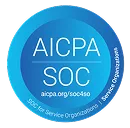
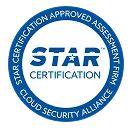

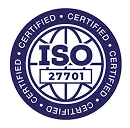









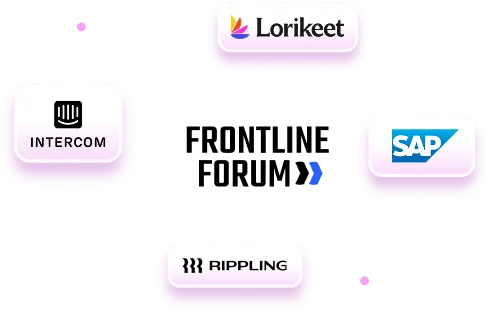
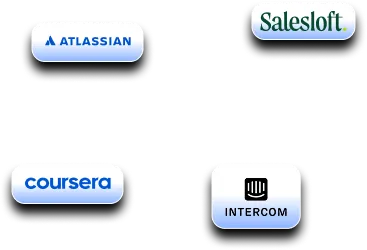


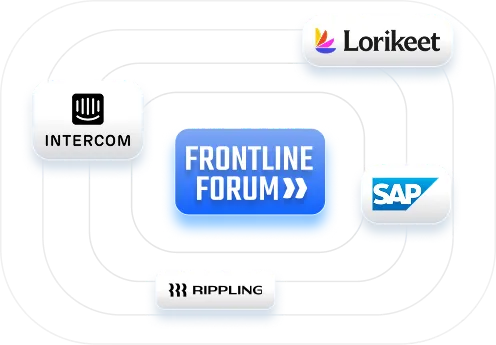
.webp)